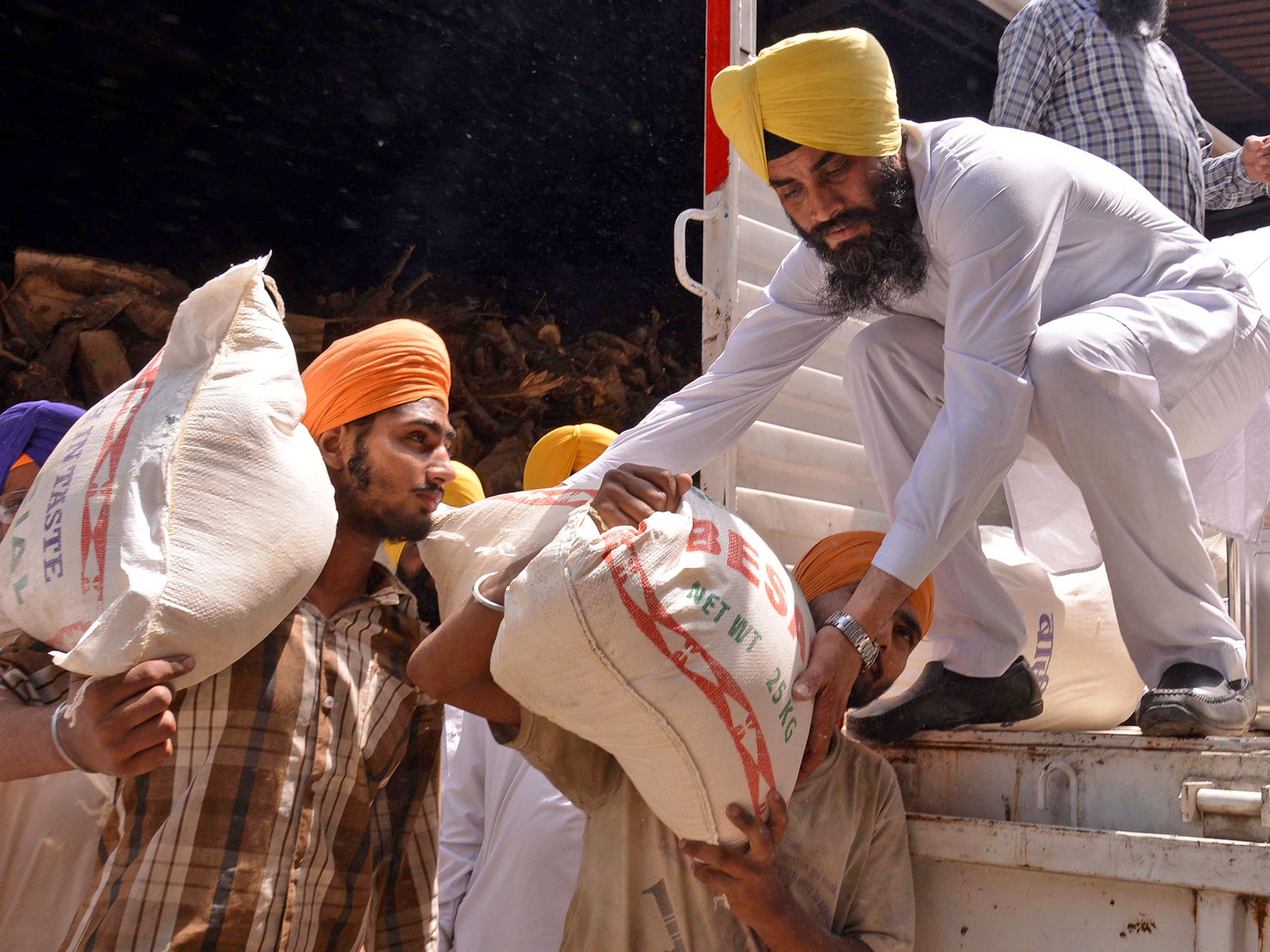Nepal earthquake: Regional powers jockey for status in aid effort
China, India and Pakistan compete for influence with disaster diplomacy

Wedged between the two rising Asian superpowers of China and India, landlocked Nepal watched rescuers and offers of help pour in from both sides within hours of an earthquake that killed more than 5,000 people.
India, the traditional power in the region, launched Operation Friendship soon after the quake on Saturday. It has sent the most help so far, deploying 13 aircraft and more than 500 rescuers as well as water, food, equipment and medical supplies. China, increasingly making inroads in Nepal, also pledged all-out assistance within hours of the disaster. It has sent 62 rescuers plus blankets, tents and generators and announced plans to send four planes and an additional 170 soldiers.
India’s rival, Pakistan, has sent four cargo planes full of supplies, including concrete cutters and sniffer dogs.
The largesse of recent days represents a subtle brand of disaster politics, a focus on strategically located Nepal, one of the poorest nations in Asia but of importance for powerful neighbours jockeying for position.
Nepal’s population of 27 million has traditionally fallen under India’s economic and political sway. India, also a predominantly Hindu nation, considers Nepal within its traditional sphere of influence, and as many as three million Nepalese people live and work in India. But in recent years Nepal has forged closer ties with China as a counterweight, and the Nepalese government has assured Beijing that it will not tolerate any anti-China political activism by Tibetans in Nepal.
An increasingly expansive Beijing, meanwhile, is eager to court the Nepalese government as it opens trade routes south and westward and seeks to keep the country’s exiled Tibetan community from fomenting unrest across the border in China-controlled Tibet. China is also aiming to “shoulder more international responsibilities and duties” as its economy and global profile increase, said Wang Lian, an expert on South Asian affairs at Peking University. “When China fulfils its duties, it will certainly boost its influence in south Asia.”
Diplomats in Nepal’s neighbouring countries deny any rivalry in aid efforts. Still, the quake has provided a way for them to display their strengths in humanitarian assistance and, by extension, their relative sway. While China’s relief efforts may not rival India’s, its offers of investment in the power industry and other infrastructure could give India some substantial competition, said Professor S D Muni, an Indian expert on Nepal with the think-thank Institute for Defence Studies and Analyses. “The Chinese would certainly provide economic assistance to Nepal, which finds itself in a terrible condition,” Professor Muni said.
With nearly £2.5trn in foreign currency reserves and a vast engineering and manufacturing capacity, China is likely to play a major role in Nepal’s rebuilding process. China has also been planning to extend railway tracks to the border with Nepal. All these investments are part of Beijing’s ambitious plans to build infrastructure across southern and central Asia, as highlighted in a recent pledge to invest as much as $46bn (£30bn) in Pakistan. Pakistan views its neighbour as a supportive but independent voice in the region, while India feels it needs to keep Nepal on its side as China boosts its involvement there, said a Pakistani defence analyst, Talat Masood. AP
Join our commenting forum
Join thought-provoking conversations, follow other Independent readers and see their replies
Comments
Bookmark popover
Removed from bookmarks